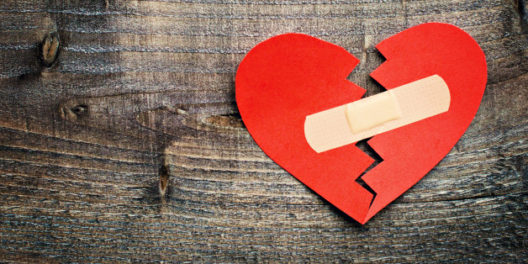The Trouble with Trauma
By Gerry Baird
When we think of those who have been injured in accidents, we do not generally come to the conclusion that they need lectures, social pressure or ostracization in order to heal. They may be challenged by a skilled physical therapist at the right time and in the right way, but otherwise their prescription is going to include a lot of rest under a doctor’s supervision. When we are dealing with spiritual wounds, however, the love and care we need can sometimes be neglected.
Human Motivation
Human motivation is a complex topic that has been debated by philosophers, politicians and spiritual leaders for millennia. In the last century, scientists have joined the debate and further enlightened us. However, there is still so much we do not know. For example, therapy outcome research studies have shown again and again that the method of therapy isn’t as important as the connection the client feels with the therapist. When we feel heard and understood by another human, it makes an impact. When someone expresses empathy and compassion for our situation, it helps us feel less alone in our struggle. When we discover the difficult emotions we are feeling aren’t unique, it creates a common bond between us. We can begin to help each other instead of competing. We can set aside jealousy and fear in order to assist a fellow traveler on the journey of life. This ideal is embodied by the beautiful doctrine of the LDS Church to “mourn with those that mourn”. But what happens when we do the opposite? What is the effect of mocking, gossiping about or giving the silent treatment to those that mourn instead of mourning with them?
Opposition in All Things
About a dozen years ago, I was playing racquetball with a friend. He was a better player than me, and I was getting tired of always losing. I told myself, “I’m going to win this game no matter what.” This is the equivalent of saying, “Hey y’all, watch this!” It was a bad idea, and because I was overplaying I ended up on the ground with a torn ACL. I had never in my entire life experienced so much pain. I said the shortest prayer I’ve ever said, “Help me,” and was quickly blessed with the comforting bliss of endorphins.
I was in the physical therapist’s office the day after my surgery, because it was essential to start moving my knee so scar tissue wouldn’t build up and permanently limit my range of motion. I had never done physical therapy before, but it felt very similar to a medieval torture chamber, complete with a smiling (but well-meaning) tormentor. After several days of physical therapy, I could tell I wasn’t progressing the way I should have been. Pointing to a spot above my knee where an incision had been made in order to obtain the material to rebuild my ACL, the physical therapist told me “You need to engage this muscle so you can walk without crutches”. I told him I would try, which is all I could promise even though Star Wars folklore says trying isn’t a valid construct.
That evening, I sat on my living room carpet and made an effort to lift my leg off the floor. Even an inch would have been enough, but I couldn’t do it. I flexed every muscle in my body except the one that needed to be flexed. I think I even flexed my teeth. Something beneath conscious control was happening in my brain. It had decided, without my approval, “That muscle has been injured. It will hurt too much if you engage it, so I’m not going to let you.” I have never in my entire life wanted anything so much or tried harder to achieve it. The effort left me red-faced and sweating, but no amount of raw exertion helped. I didn’t have a motivation problem. I had a trauma problem, and I was starting to wonder if I would ever walk again. Someone looking at me on the floor that night might have felt I needed a drill sergeant to motivate me, but it only would have made the situation worse. What I needed was an expert who had been trained to help in situations like this. Fortunately, I had one, and after a very difficult session during which I questioned both the sanity and the motives of my physical therapist, I was able to engage the recalcitrant muscle and walked out of his office without crutches.
Experts
There are only two “experts” when it comes to how you personally should live your life: you and Christ. That’s because no one else knows what it’s like to be you. Family members and church leaders may have a form of stewardship over you, but ultimately you are accountable for the way you choose to use your God-given agency.
We are all grateful for parents who love their children and raise them as well as they know how, and we are grateful for the many good bishops and LDS Church leaders who give so much to build the Kingdom of God. We know they are imperfect, but most are doing the best they can. Unfortunately, there are times when the one who is assigned to tend us wounds us. It may or may not be intentional, but it happens. When we experience trauma, it may leave us hurting and unable to fulfill our duties on the good ship Zion despite desperately wanting to do so. Just as I couldn’t lift my leg off the floor even after exerting all possible effort, we may at times find ourselves in situations where our “testimony muscle” simply won’t engage.
There are no simple answers in these cases, and we may not know where to turn for the healing we need. The Savior is the good shepherd, and He understands our pain perfectly, but sometimes the nature of the trauma prevents us from believing in Him or believing He cares about us. When we look to our leaders for validation, they may give us the opposite. When we turn to our fellow ward members for understanding, they may choose judgment over compassion. Isolation then adds to the trauma, compounding our wounds the way an infection can become far more life-threatening than the original injury. The man who fell among thieves was ignored by the priest and the Levite, but he could just as easily have received lectures from them. It took a despised Samaritan to show these supposedly pious men how to love.
Empathy
There are eternal principles upon which the Church of Jesus Christ of Latter-day Saints rests. These principles were true before the world was created, have been true throughout all of history, and will remain true through everything that lies ahead. One of them is this: God loves His children. All of them. He loves Lucifer as much as He loves Jesus. He loves Judas and He loves you. We are not just numbers and statistics and labels to Him. We are His everything, the very reason the universe exists. Let that sink in for a moment: His greatness and power and perfection are all focused on the goal of saving your soul. That makes you someone who matters. It means you have divine privileges, and anyone who dishonors you will answer to God for it. On judgment day we will be stripped of titles, callings, status and wealth. We will stand beneath the all-seeing eye of God and in His perfect wisdom He will ensure we are given exactly what is best for us. We will thank Him, because His mercy is just. We will realize He has always watched over us, giving us the support and challenges we needed. We will know without a doubt how compassionately and devotedly our Father adores us.
God’s love is the model for human empathy, but too often we take the opposite approach. Instead of allowing His values to enlighten us, we project our values onto His character. We see God through the lens of our own fear, confusion and bias. We assume we know His will not only for us but for others, and we attempt to speak for Him when our words do not match His. Some mistakenly believe priesthood authority makes their words right, holy and final. This is what it really means to take the name of God in vain. When ecclesiastical authority is wielded like a weapon against a struggling sheep, God weeps.
Healing
If you have been wounded at church, it can be more traumatizing than if you are wounded somewhere else. Church is a place where you expected to always feel safe, and now it may seem like you are backed into a corner with your eternal salvation in jeopardy. Forgive yourself for struggling and shake off the judgmental words of critics who cannot fully understand what you are facing. Your soul knows what it needs to heal. Get quiet and listen to what it is trying to say. If you feel cut off from God, consider this: when Christ was on Earth, He spent His time with the outcasts. As His traumatized child, you are the very one He seeks. Today, as in times past, His spirit can be found in prisons and in places we wouldn’t normally call holy, but anywhere God’s presence is felt can be a sacred place. It may be that the Spirit is trying to comfort you, but you are pushing it away because you feel or have been told you are unworthy. Do not believe for a second that you are no longer entitled to God’s love, help and strength, no matter how ashamed you may feel.
If someone you love has suffered a spiritual wound, don’t believe what you have been told about that person. You don’t know the whole story. Seek them out in fellowship and love and prayer. Mourn with them, comfort them, listen to them with empathy, and let them feel the warmth of your love and light. This is the way to stand in the Savior’s stead, becoming an instrument in His hands in your own personal Christlike ministry.



